The AMD EPYC 7262 is not an expensive chip. In the $550-600 USD price range, the EPYC 7262 is considered a lower-end server part. At the same time, if offers something completely unique. It is a 3.2GHz base clock processor with a whopping 16MB of L3 cache for each of its 8 cores. The result is a CPU with the platform capabilities of the AMD EPYC 7002 series, along with a per-core performance that is above what Intel can offer in this segment. If you previously thought Intel Xeon was always faster per core, this review is going to show you that in this price segment, the AMD EPYC 7262 is the performance per core king.
Key stats for the AMD EPYC 7262: 8 cores / 16 threads with a 3.2GHz base clock and 3.4GHz turbo boost. There is 128MB of onboard L3 cache. The CPU features a 155W TDP. These are $575 list price parts.
Here is what the lscpu output looks like for an AMD EPYC 7262:
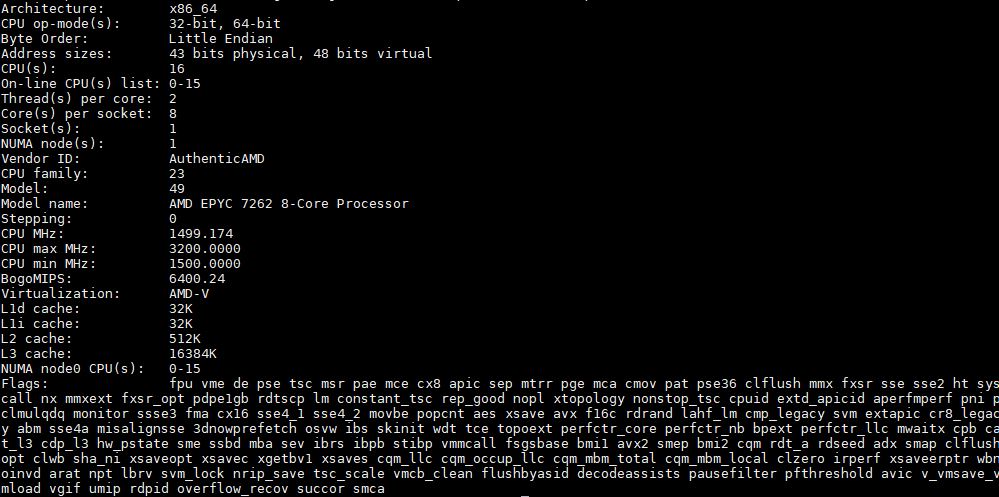
With the AMD EPYC 7002 generation, we have a single NUMA node where all PCIe devices attach. That means all 128x PCIe Gen4 lanes of a single socket system connect directly into a single die, much like on an Intel Xeon Silver. Here is an example of the topology in a Gigabyte R272-Z32:
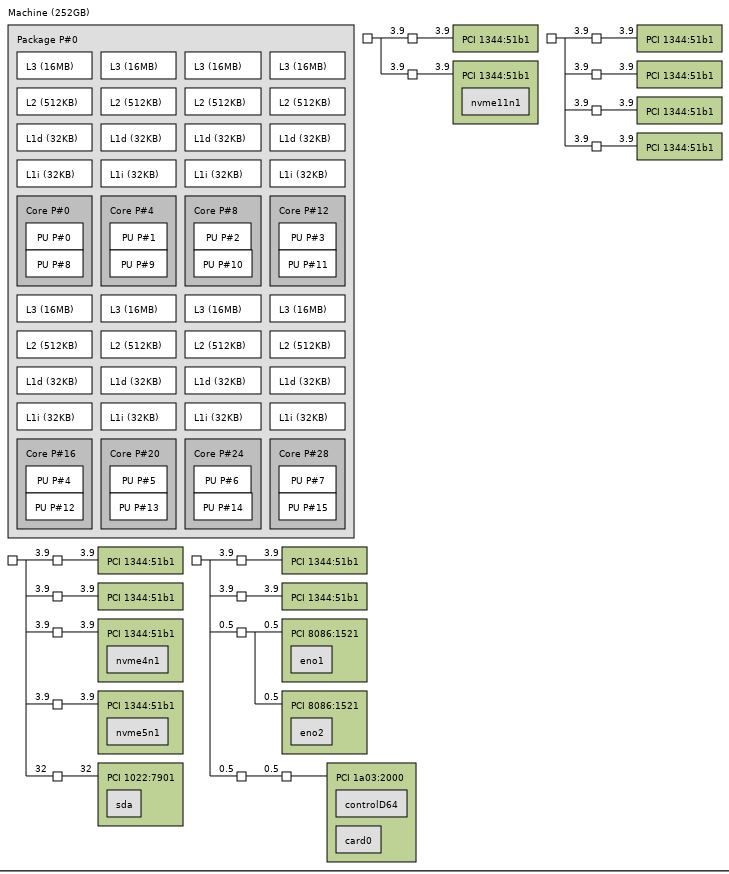
Between the specs and the topology view above, you may have noticed a key feature. This CPU has an enormous amount of cache. Each core, and therefore pair of threads, in the 8 core/ 16 thread CPU has a whopping 16MB of L3 cache and 512KB of L2 cache. That means the chip has a total of 128MB of L3 cache. A top-end Intel Xeon Platinum 8280, in comparison, has only 38.5MB of L3 cache. A more price-competitive Intel Xeon Silver 4210 has only 13.75MB of L3 cache. While Intel has, at the base, 1.375MB of L3 cache per core, the AMD EPYC 7262 has 16MB of L3 cache per core. This is more than 10x.
Beyond the cache, the AMD EPYC 7262 also supports up to 128x PCIe Gen4 lanes (single socket) or 160x PCIe Gen4 lanes (dual socket) while a 2nd Generation Intel Xeon Scalable supports only 48x PCIe Gen3 lanes per CPU.
Another feature is that the AMD EPYC 7262 supports 8 channel DDR4-3200 RDIMMs and up to a 4TB memory capacity. A price-competitive Intel Xeon processor, like the Intel Xeon Silver 4210 has only DDR4-2400 support using a 6 channel memory controller and 1TB of memory support.
A Word on Power Consumption
We tested these in a number of configurations. The lowest spec configuration we used is a Supermicro AS-1014S-WTRT. This had two 1.2TB Intel DC S3710 SSDs along with 8x 32GB DDR4-3200 RAM. One can get a bit lower in power consumption since this was using a Broadcom BCM57416 based onboard 10Gbase-T connection, but there were no add-in cards.
Even with that here are a few data points using the AMD EPYC 7262 in this configuration when we pushed the sliders all the way to performance mode and a 155W cTDP:
- Idle Power (Performance Mode): 93W
- STH 70% Load: 149W
- STH 100% Load: 187W
- Maximum Observed Power (Performance Mode): 211W
As a 1U server, this does not have the most efficient cooling, still, we are seeing absolutely great power figures here. The impact is simple. If one can consolidate smaller nodes onto an AMD EPYC 7262 system, there are power efficiency gains to be attained as well.
Next, let us look at our performance benchmarks before getting to market positioning and our final words.

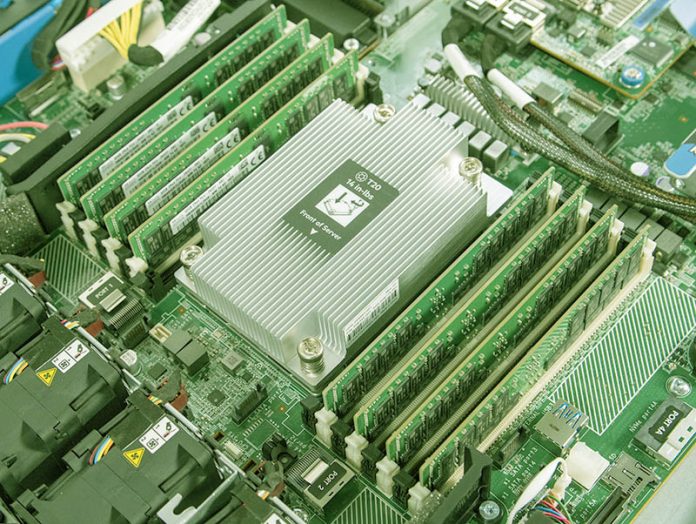

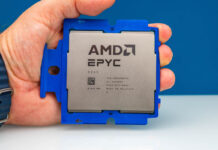
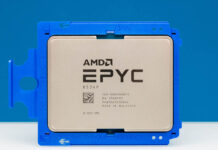
We were debating those HPE DL325s with these as CDN servers at a few of our international sites. This is a timely review I’ll sent to the team
At least that answers whether we should get the DL325’s with 7262’s or 7302p’s
Thanks for doing these cheaper chips John
Missing is a comparison between the 7262 and its Ryzen counterparts. How does the cache and more RAM channels compare against its consumer counterparts ?
André – the Ryzen is a different class of product to the point that they are not replacements. It is not just cache and RAM channels, but also PCIe.
More importantly, you can get an EPYC server from Dell, HPE, Lenovo, Supermicro but you cannot get a Ryzen server from the big server players.
Unfortunately all tests does not show any advantage of 128MB cache in this cpu. Pity that you don’t have some memory intensive test(s) which would show the advantage of 128MB cache versus 23MB in 7232P. Otherwise 7262 looks as great chip thanks to its huge cache and 3.4GHz max top speed, which is max top speed also of its more expensive siblings.
Just used ‘openssl speed rsa2048’ on my desktop machine (Ryzen 7 3800X) and got:
2090.9 sign/s
72774.1 verify/s
# openssl speed -multi 16 rsa2048
17079.6 sign/s
571428.6 verify/s
Where this cpu is going to shine, is not so much in multithreading, but multitasking. with several very lightly or single threaded apps running at once. Then watch this CPU tear Xeon’s a new hole even more than it already does. And it will pull away much further away from its single socket counterpart.
Hey Pat, just finished reading your article and decided to order an Asrock EPYCD8 MB to pair with the 7262. Do you know if non-ECC memory will work in a server board that requires ECC memory? Figured I’d use what memory I currently have until I could purchase ECC.
Patrick’s GeekBench for this system: https://browser.geekbench.com/v5/cpu/22448
single socket capable?
Single and dual-socket capable, but it does not have the special P series pricing for single sockets
When comparing the 7262 with 7272 and 7282 you forgot about the per socket memory bandwidth (you actually have your own article about it).
Bottom line: the 7262 is the only “entry level” CPU for high throughput streaming content or high performance network file serving (or both). That’s actually quite a unique position coupled with 2xCPU option.
A pitty there is no 7262P…